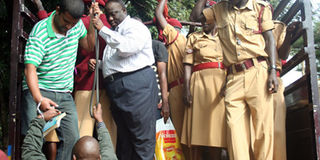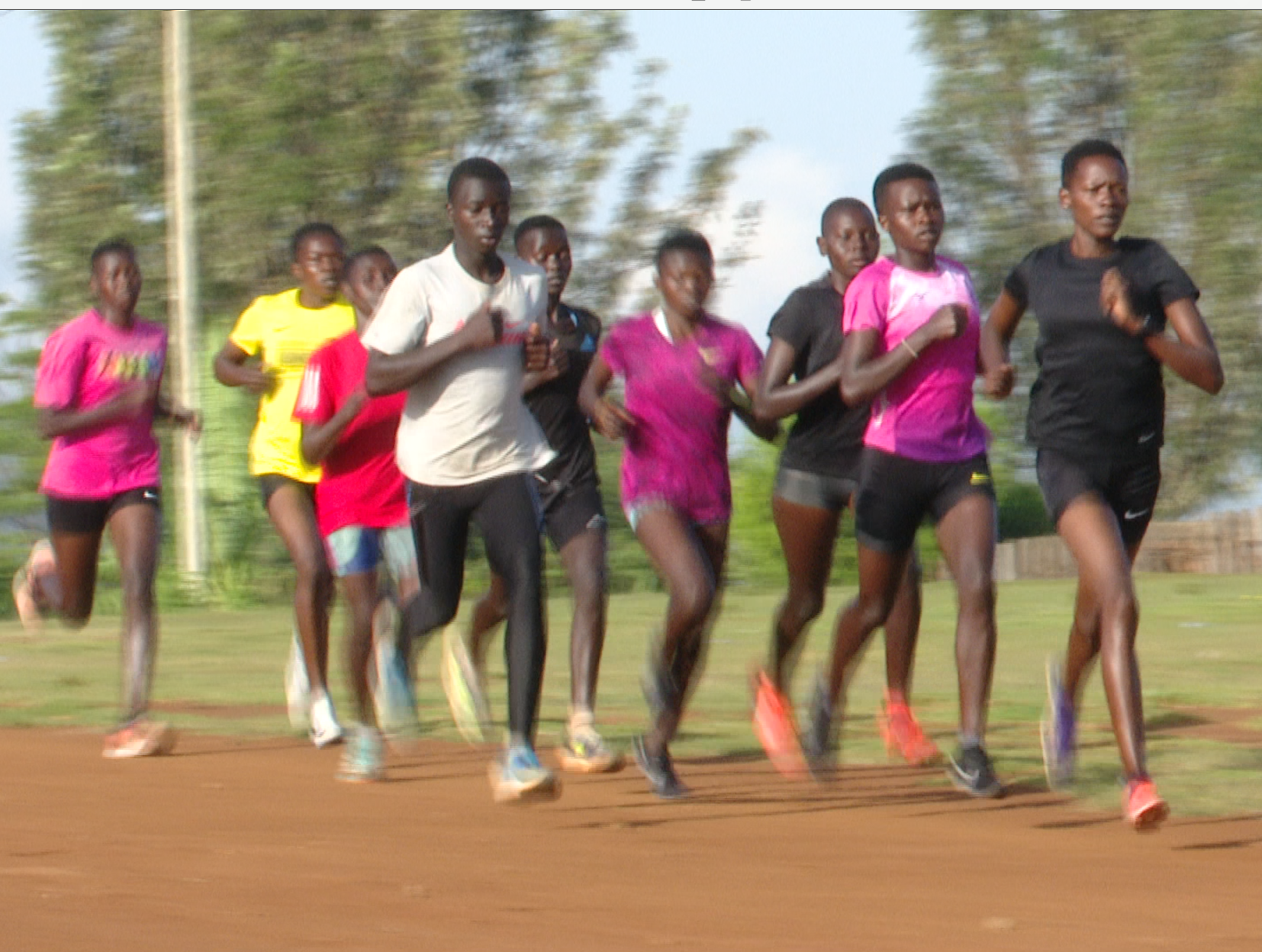Prime
When peasants gang up against corruption

Suspended Office of the Prime Minister Principal Accountant Geoffrey Kazinda (2nd L) has been accused of corruption. PHOTO ABUBAKER LUBOWA
What you need to know:
Fighting from the grassroots level. With grand corruption being the order of the day at the national level, rural folks, who are normally the victims of such deep-rooted practices, are not just watching but taking lessons.
Well aware of their rights and collective responsibilities, the rural folks have, in about five districts, created groups of 20 people whose sole responsibility is not only to have the local officials account for their actions and responsibilities but ultimately safeguard themselves against the grand scale corruption resident in top government offices.
And for that, not all the local and district powers that be are impressed.
In fact some local and senior district officials are already of the view that the Village Budget Clubs (VBC) are stretching their mandates just too far, turning them into nuisance and worse still, irrelevant.
“It wasn’t easy in the beginning,” said Mr Narcis Kabahigire, the VBC Secretary in Kyabuhangwe, Kabale District. “We were called names. Some said we were good for nothing peasants, others thought we are idlers and others even labeled us opposition supporters. But that didn’t stop us from demanding accountability - because we knew we were doing something that benefits our entire community.”
According to Ms Jeminah Kasangwe, the Kyabuhangwe VBC group chairperson, the idea of the village club came into fruition to ensure that community members participate to cure teachers’ absenteeism, ensure that drugs and medical personnel hold leaders and government official accountable for their responsibilities and action.
Although some local leaders and officials think the VBCs are doing a great job, particularly in bringing some of the undisciplined, negligent, and marauding officials to order, a few argue that the “peasants” do not have technical capabilities to determine fraud, let alone the right to summon officials over a matter.
Gulu District Assistant Chief Administrative Officer David Opwonya in an interview over the matter recently asked: “Who should bring the head teacher to order when things are not going on well at school? Should it be the village group members or the Inspector of Schools?”
His argument is based on the notion that the rural folks who make up the VBCs lack the technical skills to hold government officials accountable. He said: “How will they know that the money has been misappropriated or mismanaged yet they have not looked at the books of accounts, let alone having the technical ability to interpret these books? These, in my view are some of the pertinent issues that need answers.”
Both the Kabale VBCs and the ones based in Gulu utterly reject that assertion. They argue that they do not need to have academic degrees to know that there are no drugs in the health centres, that teachers are rarely at school, that Naads programme is not working.
The Gulu District Speaker, Mr Douglas Peter Okello, also rubbishes the idea that only the elite should be in charge of monitoring performance of community public facilities and bringing to book the officials entrusted with managing public funds.
“Anything that empowers local people to stand for their rights I will support it. The VBC is one such initiative that changes the attitude of the local people — people who didn’t know that their collective responsibility can move mountains,” Mr Okello said.
What is not in dispute though is that, specifically where these community groups are functional, people, especially women are actively involved and more informed about developments related to resource allocation and utilisation and there is a registered improvement in service delivery.
There has been increase in the number of children going to school, reduced teachers absenteeism and more accountability in terms of public officials putting to good use public resources.
And now what is emerging is that there is a scramble for this Forum for Women in Democracy (FOWODE) model to be replicated across all the villages within the different districts.
Origin of village teams
The VCB is a concept developed by FOWODE to promote gender accountability from grassroots level to the national level. Three VBCs have been established in each of the 17 districts of Kabale, Kibaale, Kibuku, Luweero, Napak, Amuria, Amuru, Kotido, Kitgum, Abim, Busia, Lyantonde, Masindi, Luwero, Mityana, Wakiso and Gulu.
Each club is composed of 20 members, 12 of whom are women who were mobilised and trained in gender budget monitoring and service delivery tracking at community level. The trainings equipped them with knowledge and skill to begin questioning how resources are mobilised and allocated and whether the allocation criteria addresses the needs of poor women and men in that particular community.
==============================
about the clubs
In short, the clubs act as a pressure group and since 2010, the VBCs have been engaging the local leadership on budget processes and resource allocation as mandated by the Local Government Act, and on their own, the VBC organise monitoring the quality of service delivery in public facilities including school, hospitals, agriculture programmes and also later organise budget meetings aimed at asking and requesting information on particular budget issues in their locality, from their duty. Through these community actions, many cases of fraud and mismanagement have been exposed and brought to the attention of leaders who, many times, have taken action on the exposed mismanagement.




